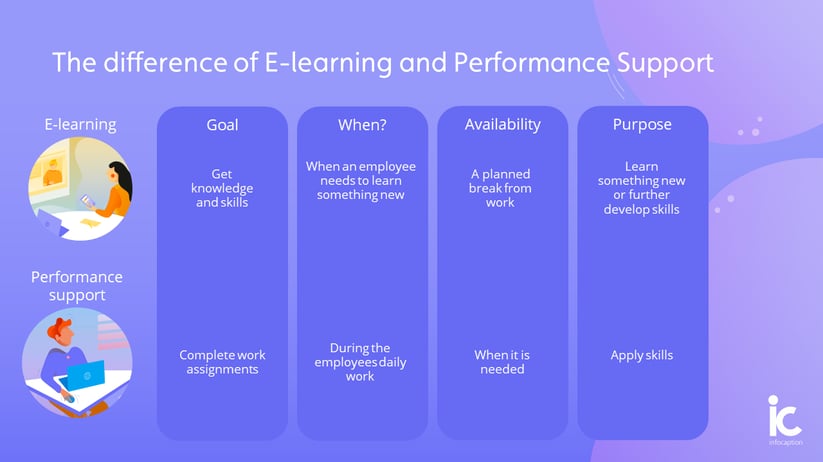Google is one of our most important sources of knowledge. With the help of search engines on the Internet, knowledge has become available - anytime and anywhere. Has it changed the way we learn? Is it a positive change, or has it made us dumber?
Has Google made us dumber?
Since the start of the 2000s, Google has been one of the world's strongest brands, so strong that the company name has become a verb (to Google). With constantly improving search algorithms, most web pages worldwide are searchable by anyone via Google. This has led to Google being one of the most important sources of knowledge for many of us.
How does this affect our brain? Does it lead to us relating to knowledge in a different way than before? These were some of the questions that a research team from Columbia and Harvard tried to get answers to in their study “Google Effects on Memory: Cognitive Consequences of Having Information at Our Fingertips”.
The study shows, among other things, that we tend to look up the answer to a question even if we already know it. Furthermore, it shows that, to a large extent, we learn where we find the knowledge rather than learn the knowledge itself - also called the "Google effect". This has led many to wonder if accessibility is making us dumber. In this article, we will not focus so much on that particular question, but according to the study, it seems like the effect may be that we free up the capacity for more creative thinking.
Performance Support as an educator
Instead, we look at how the search for information can (and should) affect training in the workplace, and this is where Performance Support comes into play. Performance Support is considered by many to be a game-changer in learning. What makes it so unique? The most significant difference compared to more traditional forms of education is that the focus is shifted from courses to learning materials that are easily accessible to the employee at all times. The idea is that in working life, you should be able to act as we do in our free time, i.e., a quick search gives us answers to what we want to know, exactly when the need is there.
Five moments of learning need
Bob Mosher and Conrad Gottfredson are two of the educators who have worked the longest with Performance Support. They have defined five moments when learning something at work is needed. These occasions are called "Five Moments of Learning Need", and several of them are closely tied to the actual performance of work tasks.
The five moments are:
- When we need to learn something New.
- When we need to learn More about something.
- When we need to Apply what we just have learned.
- When we need to Solve a problem.
- When we are facing a Change.
Read more about the “Five Moments of Learning Need” here.
The Google effect can affect the opportunity for Change in a positive way. Change is often seen as challenging to achieve as what we perform regularly will eventually become automatic, like an autopilot. Most of us have probably experienced the autopilot, like when we drive a car on a familiar route and don't even think about our driving. When changing a learned task, we need to actively "unlearn" before we can learn again. The deeper the knowledge, the more actively we must work to change it. We may need to learn more about other tasks which we have not yet automated through repetition. The way these tasks work is much easier to change with the help of the Google effect, especially when we have the support of Performance Support in the business.
When the knowledge we need is available where we require it, we no longer have the same need to remember how to perform a task; it is enough to know where to find the answer. This also increases the probability that the task is performed correctly every time, even if the approach changes. This way of working also means that Performance Support can replace many courses, and the courses held can be supplemented by Performance Support during the workday.
 The chart above shows the difference between the purpose of traditional courses and Performance Support.
The chart above shows the difference between the purpose of traditional courses and Performance Support.
Performance Support in practice
We constantly have to deal with changes in systems, routines, and processes in our everyday work. An example of this is how Talantech's customers use their system. Talantech is a web-based recruitment system with 1400 clients in more than 50 countries. Most users of Talantech use the system at very irregular intervals, from a few times a year to a few times during their working life. When the use is so sporadic, trying to remember how different functions of the system work is unnecessary. Most likely, the interface has changed since the last time you did the same thing, or maybe the whole process has been simplified.
Talantech has solved this by creating guides and manuals made available as Performance Support - as few clicks as possible from where the users are. The guides are played thousands of times every day, and they receive feedback from customers about "world-class support," which confirms that it has been a success for Talantech. It has also significantly reduced the number of incoming cases to their support.
Summary
The entrance of search engines like Google has changed the way we absorb knowledge. We don't focus as much on remembering but instead on where we find knowledge. Thanks to Performance Support, we can access information exactly when needed. Maybe we are starting to act as the very smartest always have done. There is an anecdote about Einstein where one of his colleagues asked for his phone number. When Einstein reached for his phone book, his colleague asked if he didn't know his own phone number, to which Einstein replied: Never memorize anything you can look up in a book!


